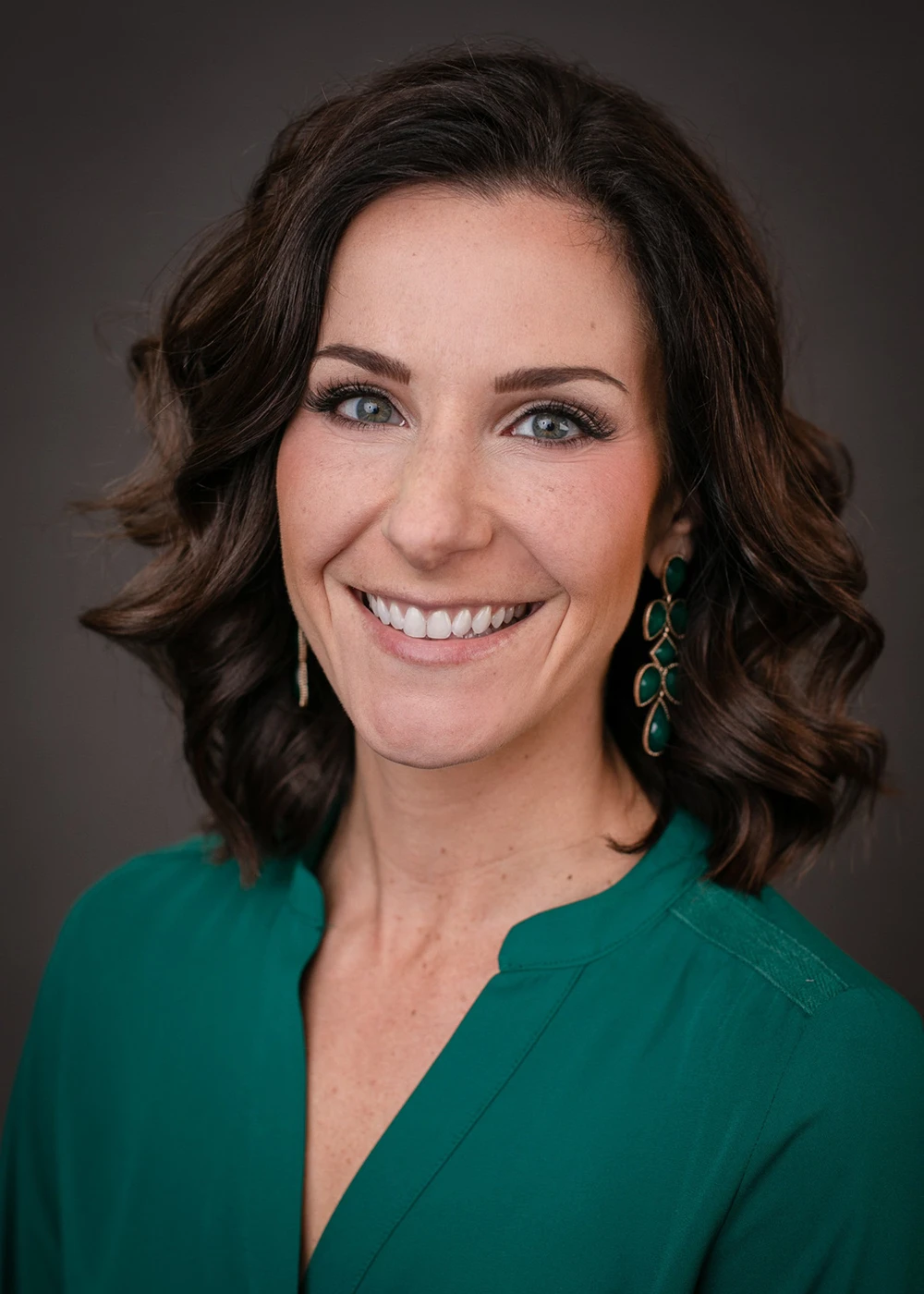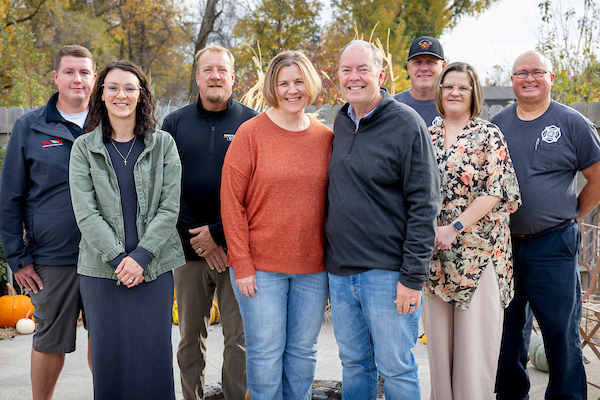
Inspiring Stories
Lifesaving collaboration for a father on Father’s Day
Published: Nov. 26, 2024
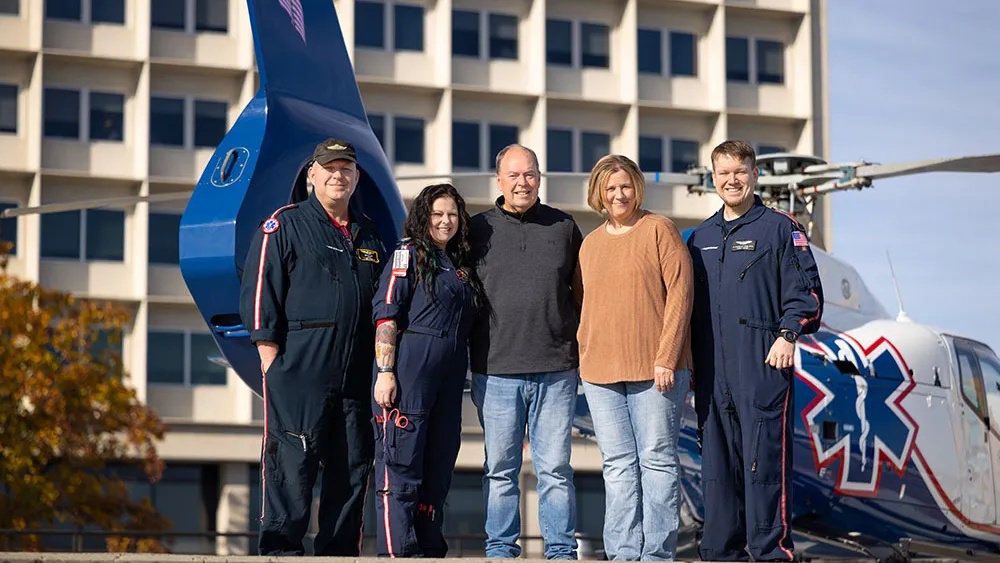
It was a Father’s Day like any other for Scott and Michelle Jarman of Cedar Bluffs, as they were once again celebrating with family in Fremont.
“That’s the day we always get together for a pool party at my brother’s house,” Michelle Jarman said. “And we had only been there about 20 minutes – about the same amount of time it takes us to get to Fremont.”
According to her, that’s key in this story. Because time was nearly everything in the way it ends.
Quick action

After splashing around with his grandkids for a bit, Scott Jarman swam to the deep end to chat with his son-in-law. That conversation ended almost as soon as it began, when Scott Jarman climbed out of the pool and casually proceeded to lie down on a lounge chair. He then went unresponsive.
Michelle Jarman, who was holding her 2-year-old grandson in the pool at the time, said her brother “Spider-Manned” his way out of the pool to begin chest compressions while her daughter called 911.
With the phone up to Scott Jarman’s mouth, the 911 dispatcher told the family that his gasping breaths indicated end of life. She gave strict instructions to continue chest compressions until paramedics arrived.
“As soon as we could hear the ambulance in my brother’s driveway, Scott opened his eyes,” Michelle Jarman said. “He tried to speak, but we couldn’t understand him. He had some left-sided weakness and maybe a little facial drooping, so they called in a stroke to the Emergency Department (ED) at Methodist Fremont Health.”
Emergency intuition
By the time Scott Jarman arrived at the ED, he was fully awake and alert.
“He felt fine,” said Tyler Ronnfeldt, MD, the emergency physician working that day. “He had no complaints, no pain. In fact, he told me, ‘I feel pretty OK.’”
Dr. Ronnfeldt continued his assessment, initiating an echocardiogram, which showed what almost looked like fluid around Scott Jarman’s heart.
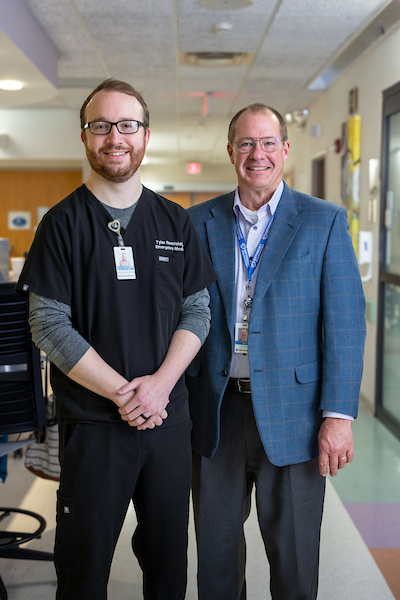
“It was small and almost seemed to disappear when viewed from a different angle,” Dr. Ronnfeldt said. “I believe I was probably thinking, ‘I'm not sure what exactly that is at this point, but we need to get a closer look.”
He knew a CT scan was necessary – and not just of his patient’s head and neck as is typical for suspected stroke patients.
“Getting a CT scan of his chest, too, was the next, most logical step based on the findings we had from the evaluation that we had done so far,” Dr. Ronnfeldt said.
Within minutes, Dr. Ronnfeldt received the CT results. Scott Jarman’s stroke scan looked clear.
But the additional imaging that Dr. Ronnfeldt requested revealed an aortic dissection – a giant tear in Scott Jarman’s aorta, the main artery that supplies oxygenated blood to the rest of the body. He needed highly specialized care – and fast.
The power of prayer
Dr. Ronnfeldt quickly got in touch with Thomas Langdon, MD, the cardiothoracic surgeon on call at Methodist Hospital that afternoon. Few words were needed by Dr. Ronnfeldt before Dr. Langdon accepted the case and stressed the importance of Scott Jarman’s expedited transport to Omaha.
“Seconds count,” Dr. Langdon said. “Especially when it comes to an aortic dissection.”
Dr. Ronnfeldt wasted no time in orchestrating the arrival of an Air Methods LifeNet helicopter while Methodist Fremont Health chaplain Scott Jensen was called in for spiritual support.
“Sometimes a prayer can be helpful,” Jensen said. “When I sense that something is meaningful, I tend to lean on that.”
And prayer was the only hope for Michelle Jarman, who was uncertain whether this was the last time she’d see her husband alive.
“In the 20 minutes that we waited for the helicopter to land is what really needs to be said,” Michelle Jarman said. “Our family was never alone. Dr. Ronnfeldt never left Scott’s side. Dr. Ronnfeldt’s nurse never left my side. When Scott Jensen arrived, he prayed with us in the room. He followed the gurney out and said a prayer over Scott before they loaded him into the helicopter. He came back to the car and said a prayer with my daughters and me before we took off for Omaha. It was a God thing. We felt him by our side, too.”
Greeted with compassion
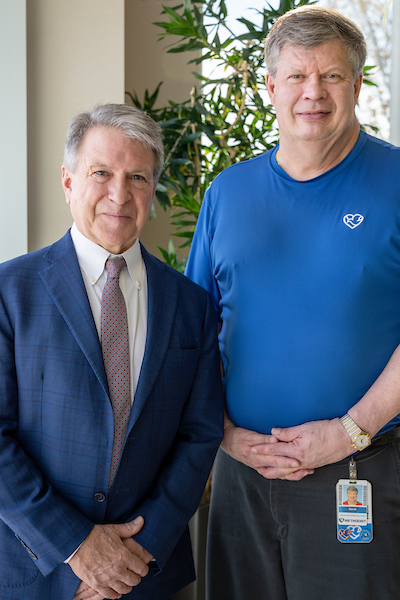
When Michelle Jarman – still soaked from her short time in the pool – arrived at Methodist Hospital, she was greeted by a kind face and calm presence.
“I could see the fear in her eyes, the trembling,” said David Prystai, a patient access professional at Methodist Hospital.
Still, he was tasked with obtaining pertinent information from her.
“I was so upset,” Michelle Jarman said. “I had nothing he needed. I didn’t have Scott’s ID, wallet or anything. I forgot it all. And I just started bawling.”
“As an employee, it’s my job to ask questions,” Prystai said. “But as a human, it’s my job to care. So, I gave her a box of tissues, grabbed her hand and said, ‘You know what? Right now, my concern is your husband. We don’t need his driver’s license to give him excellent care. Let’s do this later.’ This woman’s world was just turned upside down. I could live with the consequences of not doing my job right then and there.”
“It was just another example of how amazing literally everyone was,” Michelle Jarman said. “He even arranged for the flight crew to brief me on how Scott fared during the flight. And that was huge. I needed to know how he did and how he was doing when he went into surgery. And the crew told me what I needed to hear.”
But perhaps what she needed to hear more than anything were the words that came from Dr. Langdon after her husband’s nearly five-hour aortic repair procedure.
“When Dr. Langdon finally came to see us, he looked at me and said, ‘Do you really think a father would let another father die on Father’s Day?’ And at that moment, I knew Scott was going to be OK. I didn’t know if he’d be the same person I knew, but I knew he made it.”
‘Basically God’s work’
Although the next six days that Scott Jarman spent recovering in the hospital were some of the most challenging, “the care never changed,” his wife said.
She credits the nurses, especially those who provided her 27-year-old son the support he needed when he first laid eyes on his intubated father. She credits the respiratory therapists who provided her husband the compassion and emotional healing he needed while gently pushing him toward progression. And she credits the surgical staff for caring enough to check in on her husband long after their work was done.
“Our job is never done,” Dr. Langdon said. “Not until we know our patient is doing well.”
“Even the nurses who were in the operating room with Scott,” Michelle Jarman said. “They stopped by Scott’s room the following day because they wanted to come see – basically God’s work – this miracle.”
A full-circle ending
In August, Scott Jarman finished six weeks of cardiac rehabilitation, which started at Methodist Hospital and concluded closer to home, at Methodist Fremont Health – a full-circle ending to his story that’s marked by lifesaving collaboration.
“It’s absolutely a huge part of why I’m still here,” he said.
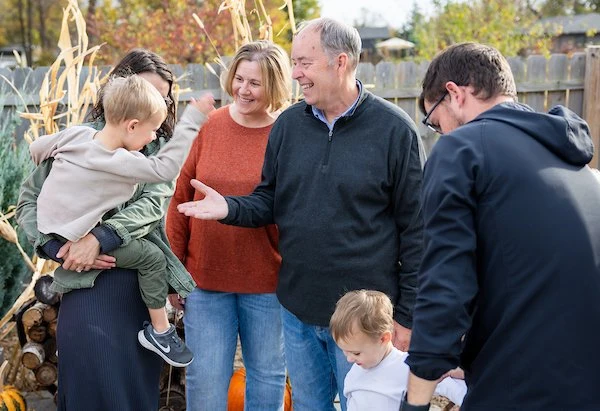
As is a Father’s Day tradition that put him 20 minutes closer to the help he needed.
“And it’s still the Scott I know,” Michelle Jarman said. “It’s still the Grandpa our grandkids adore.”
And although Scott Jarman – who prides himself on remembering everything dating back to kindergarten – recalls nothing from that fateful day, he’ll never forget the way every member of his care team made him and his family feel.
“Well, it comes down to compassion,” Prystai said. “At Methodist, we all play a vital role in that.”
“We all get to do our part,” Jensen said. “Everybody, together, is the reason we get to see a lot of wonderful things happen.”
“Honestly, I wasn’t 100% sure he was going to make it through the flight,” Dr. Ronnfeldt said, recalling a surprise thank-you visit from his patient in July. “So, to be able to see him walk back into the ED, smiling and doing so well – well, it’s just really cool.”
The next chapter
As for his next chapter, Scott Jarman is determined to pay it all forward by sponsoring community-wide CPR classes.
“We’ve heard time and time again,” Michelle Jarman said. “‘If CPR was not started right when it was, Scott would not be here today.’”
And thanks to the suspected stroke CT scan he received of his head and neck at Methodist Fremont Health that Father’s Day, a benign mass was incidentally discovered at the base of his brain. What could have been missed or gone unreported, Michelle Jarman said, is now her husband’s next health hurdle. But the Jarmans remain optimistic, knowing they’re in the best hands possible with their Methodist family by their side.
“I know that sounds cliché,” Michelle Jarman said, “but I truly mean it. The Meaning of Care is the fact that these people have become our family, and they continue to care for us like we’re theirs.”
More Resources
- Read more from the fall/winter 2024 issue of The Meaning of Care Magazine.
- Learn more about emergency services at Methodist.
- Learn more about cardiothoracic surgery at Methodist.
- Learn more about cardiac rehabilitation at Methodist.
- Read similar articles in our Heart Health section.

